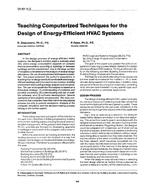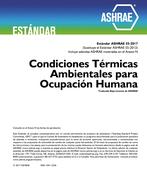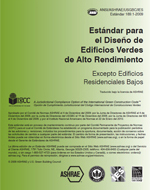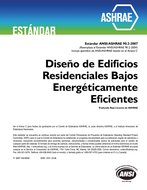Description
In the design process of energy-efficient HVAC systems, the designer’s intuition plays a relatively small role, since energy consumption depends on complex thermal phenomena occurring in buildings or between buildings and the environment. Due to the large number of variables considered and the analysis of several design alternatives, the use of computerized techniques is essential. This paper presents the author’s experience in teaching how to design and build comfortable and energyefficient buildings and is focused on two courses: building environment and building energy analysis and conservation. The use of computerized techniques is based on a three-level strategy: (1) understanding of problems and possible soulutions; (2) understanding and use of availble software; and (3) software development. Several examples of term projects are presented. The main conclusion is that computers have their role in the educational process but only to provide assistance. Analysis of the computer simulation and the decision-making process belong to the human expert.
Citation: Symposium, ASHRAE Trans., vol. 95, pt. 2
Product Details
- Published:
- 1989
- Number of Pages:
- 6
- File Size:
- 1 file , 740 KB
- Product Code(s):
- D-28235




